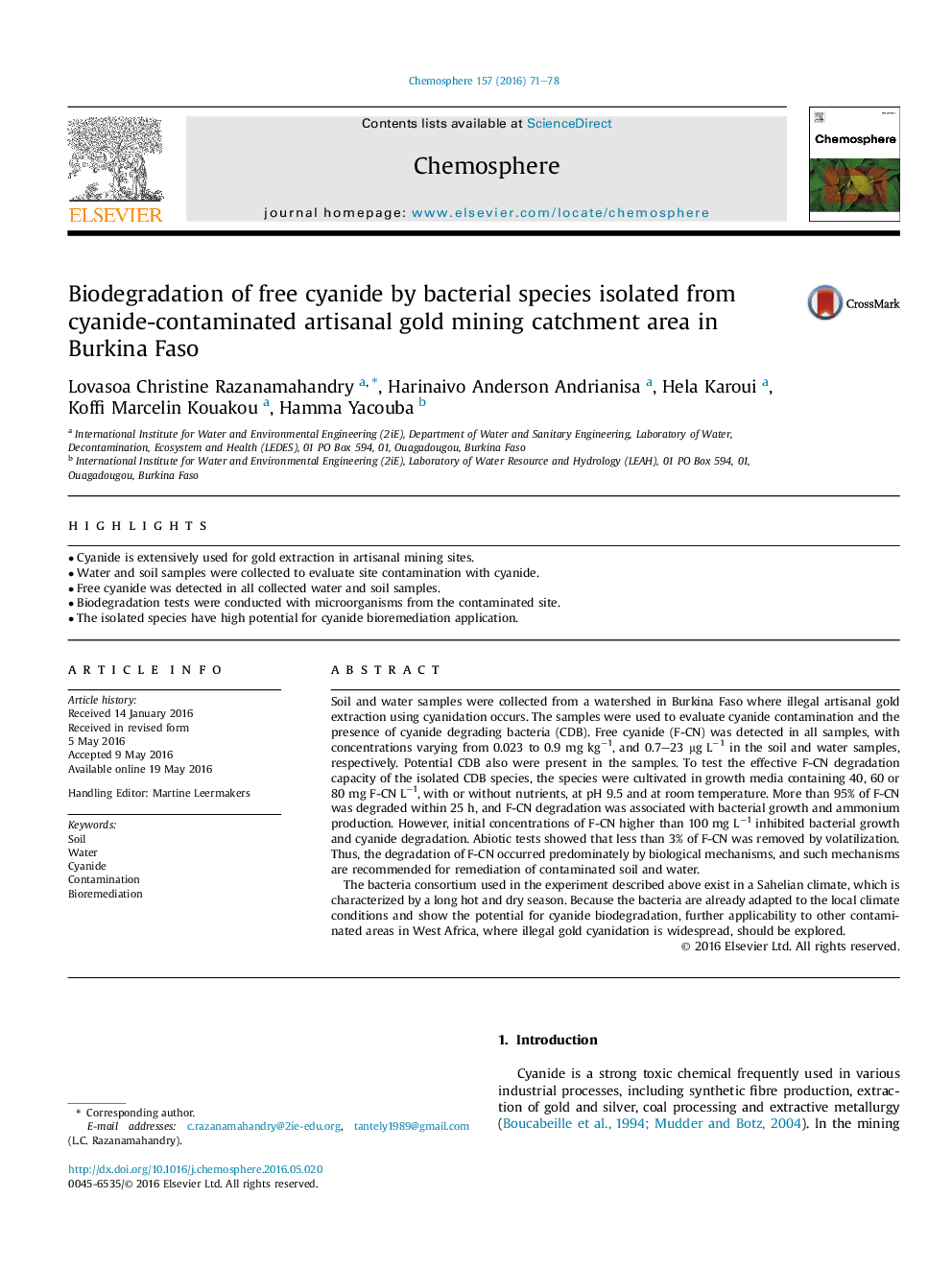| کد مقاله | کد نشریه | سال انتشار | مقاله انگلیسی | نسخه تمام متن |
|---|---|---|---|---|
| 4407593 | 1618814 | 2016 | 8 صفحه PDF | دانلود رایگان |
• Cyanide is extensively used for gold extraction in artisanal mining sites.
• Water and soil samples were collected to evaluate site contamination with cyanide.
• Free cyanide was detected in all collected water and soil samples.
• Biodegradation tests were conducted with microorganisms from the contaminated site.
• The isolated species have high potential for cyanide bioremediation application.
Soil and water samples were collected from a watershed in Burkina Faso where illegal artisanal gold extraction using cyanidation occurs. The samples were used to evaluate cyanide contamination and the presence of cyanide degrading bacteria (CDB). Free cyanide (F-CN) was detected in all samples, with concentrations varying from 0.023 to 0.9 mg kg−1, and 0.7–23 μg L−1 in the soil and water samples, respectively. Potential CDB also were present in the samples. To test the effective F-CN degradation capacity of the isolated CDB species, the species were cultivated in growth media containing 40, 60 or 80 mg F-CN L−1, with or without nutrients, at pH 9.5 and at room temperature. More than 95% of F-CN was degraded within 25 h, and F-CN degradation was associated with bacterial growth and ammonium production. However, initial concentrations of F-CN higher than 100 mg L−1 inhibited bacterial growth and cyanide degradation. Abiotic tests showed that less than 3% of F-CN was removed by volatilization. Thus, the degradation of F-CN occurred predominately by biological mechanisms, and such mechanisms are recommended for remediation of contaminated soil and water.The bacteria consortium used in the experiment described above exist in a Sahelian climate, which is characterized by a long hot and dry season. Because the bacteria are already adapted to the local climate conditions and show the potential for cyanide biodegradation, further applicability to other contaminated areas in West Africa, where illegal gold cyanidation is widespread, should be explored.
Journal: Chemosphere - Volume 157, August 2016, Pages 71–78
